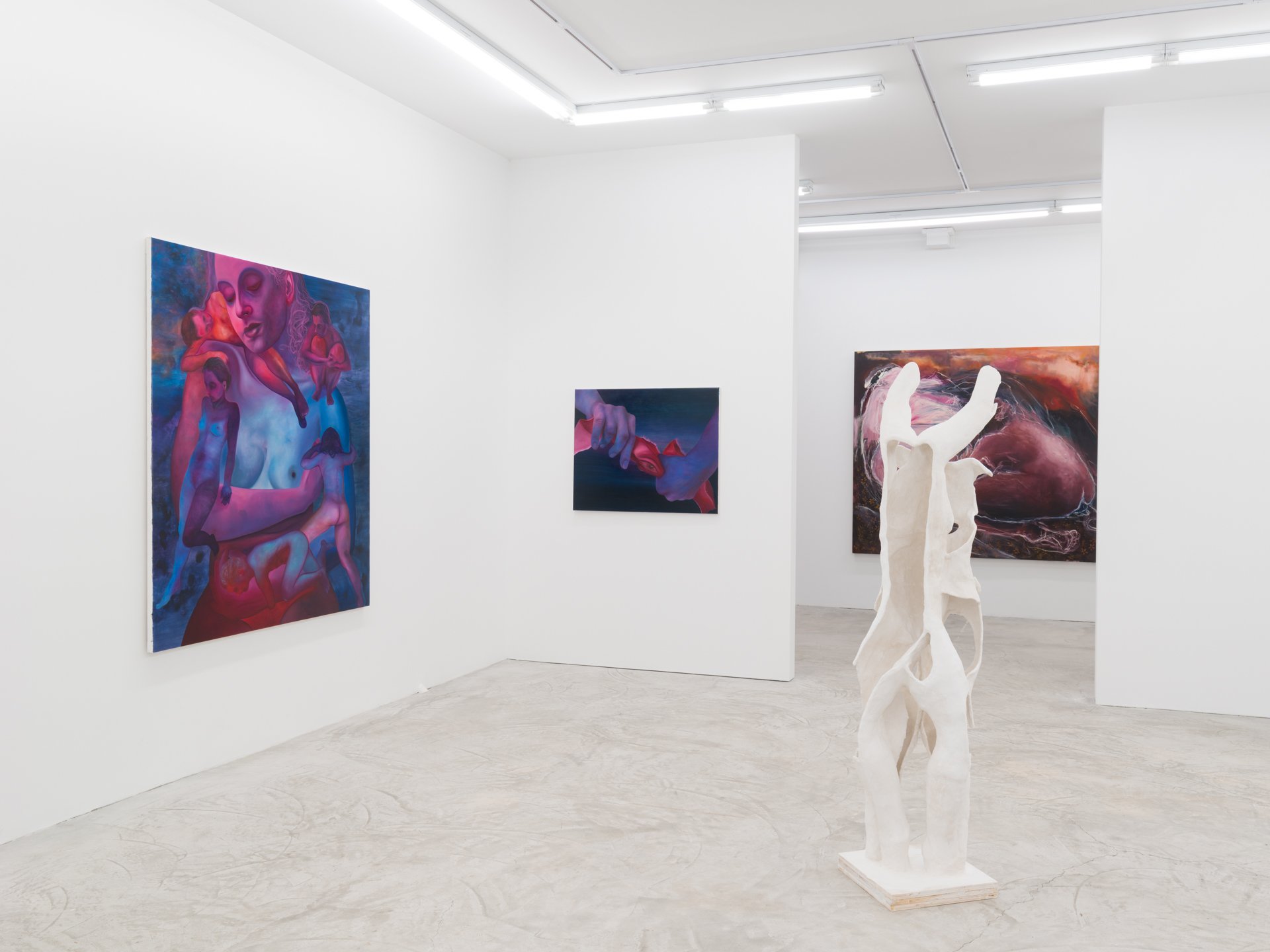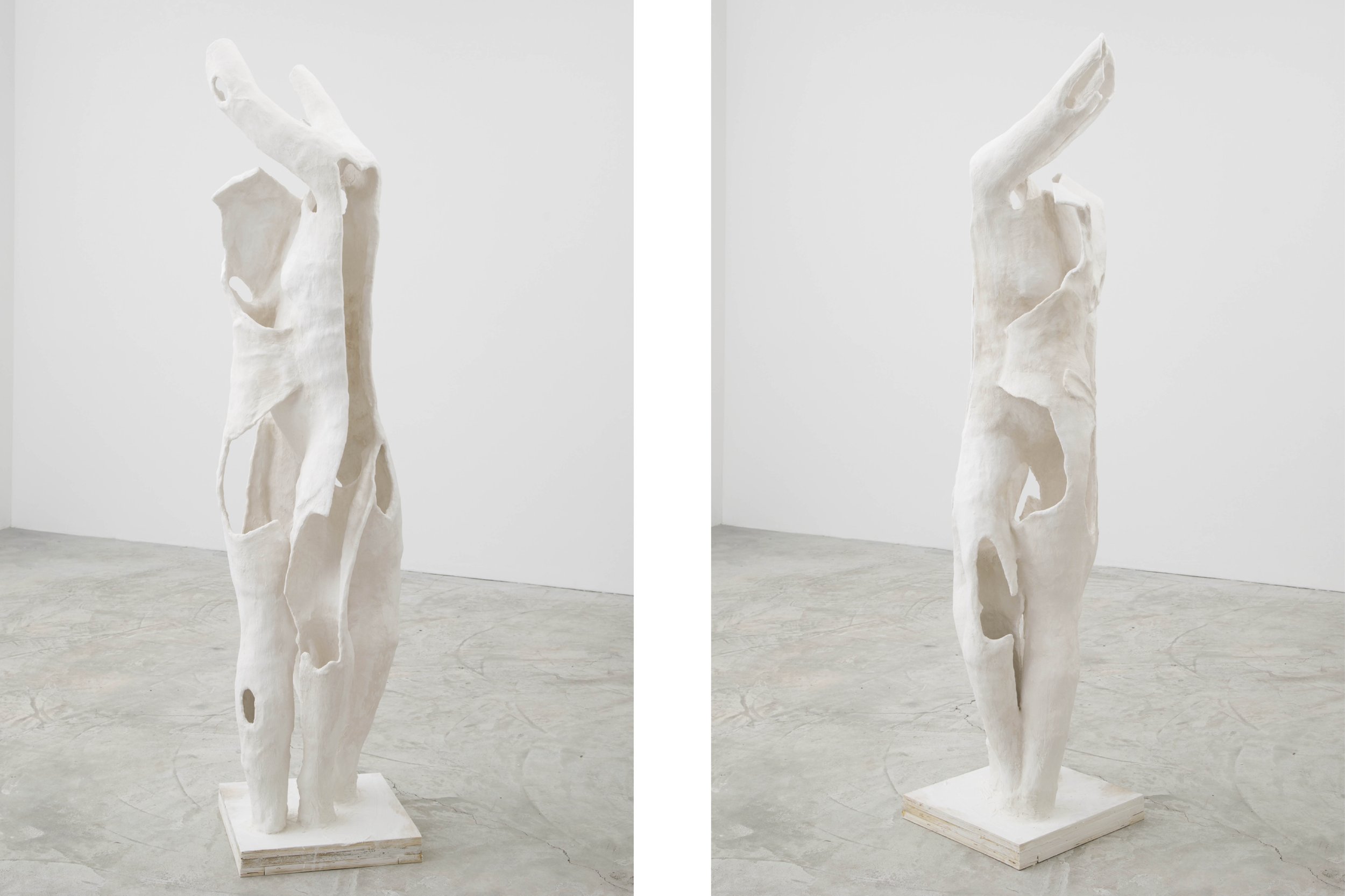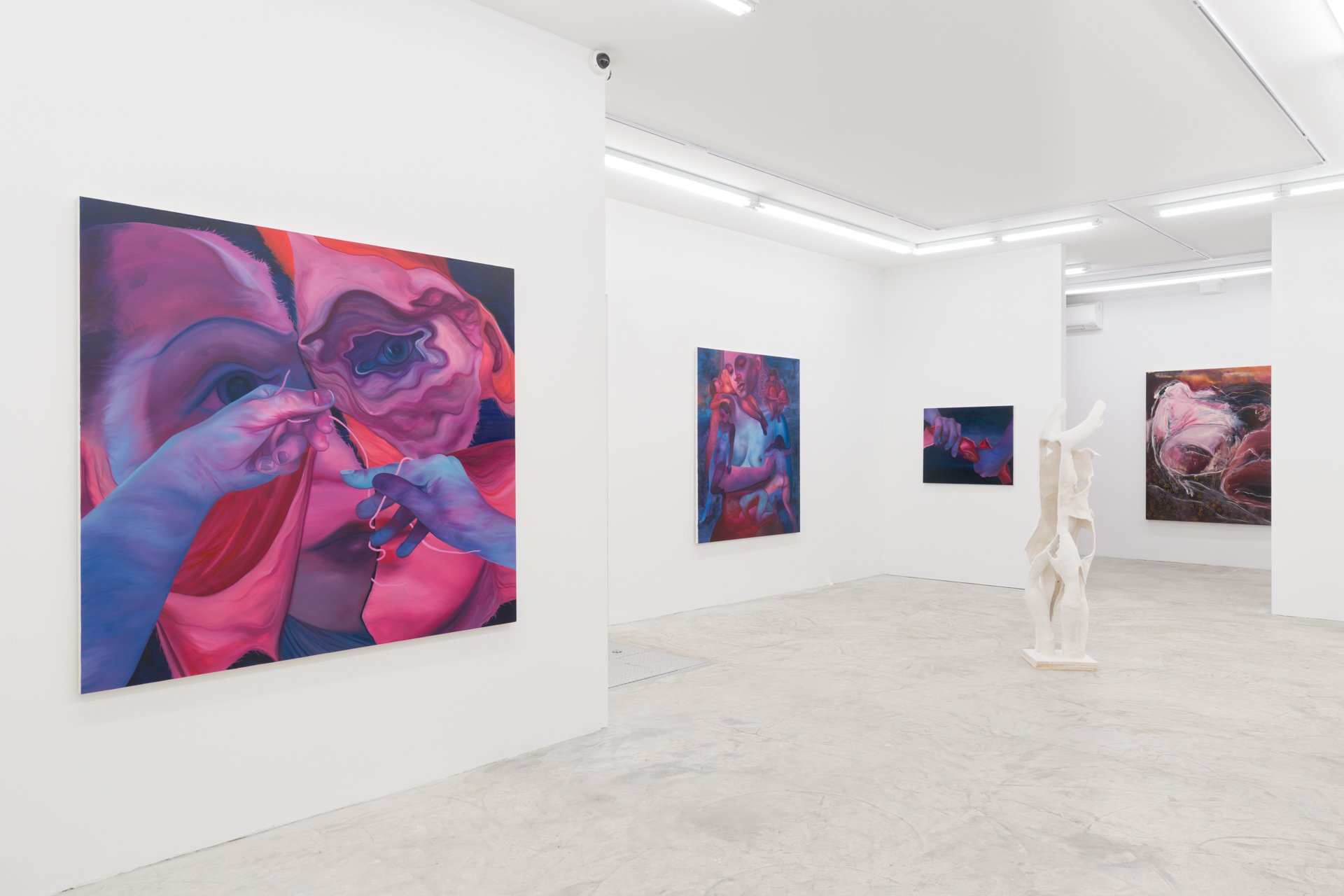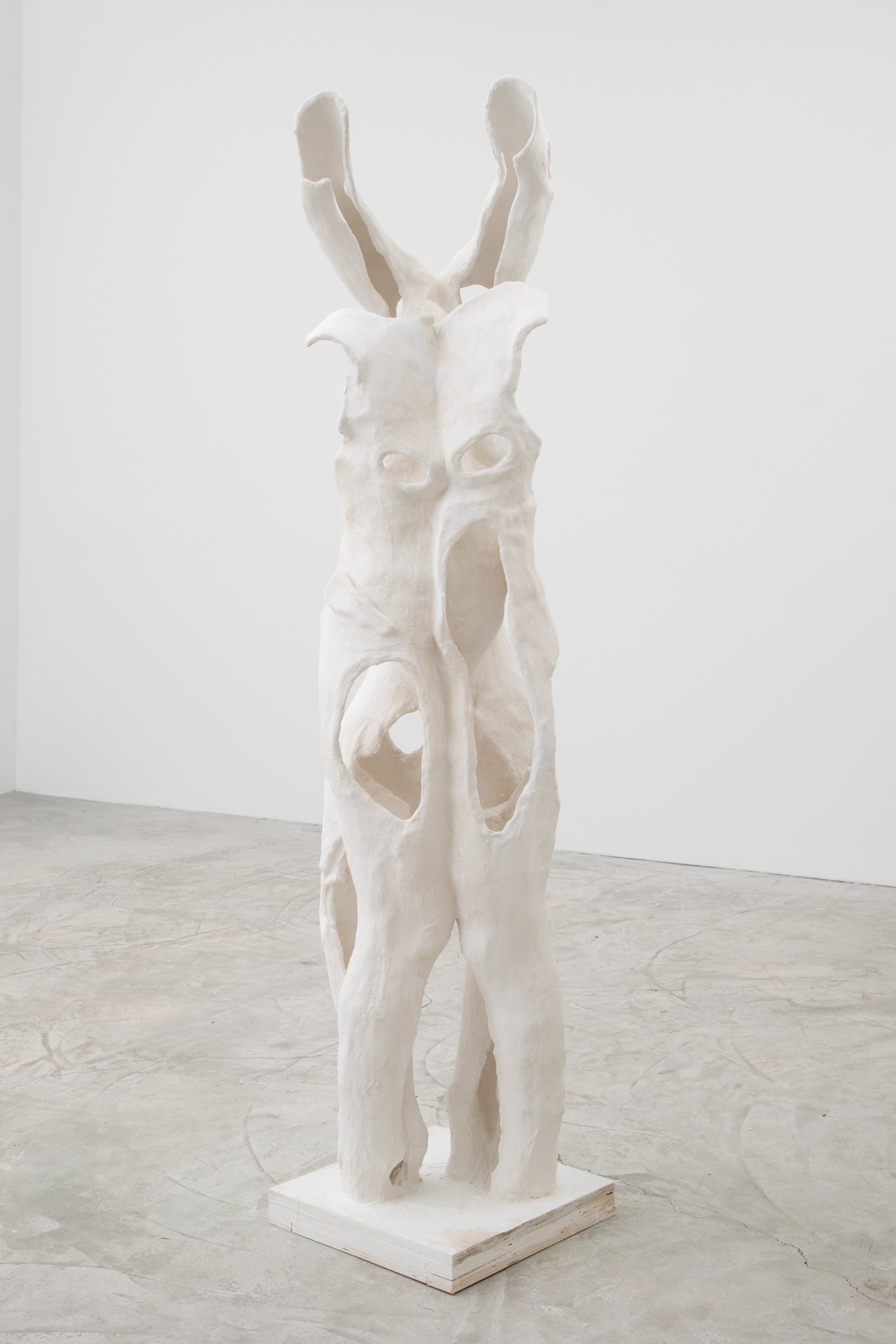Juliana Cerqueira Leite, Mercedes Llanos, Paulina Stasik
LYLES & KING, New York, May 12 - June 25
MERCEDES LLANOS, JULIANA CERQUEIRA LEITE, PAULINA STASIK
Lyles & King
Installation view
Lyles & King is pleased to present a three-artist exhibition with Mercedes Llanos, Juliana Cerqueira Leite, and Paulina Stasik.
Mercedes Llanos’ illusory paintings of bodily intimacy foreground the feminine subconscious; breaking apart and intertwining the perceived dichotomies of fear and desire, pain and pleasure, shame and gratification. Combining lived and observed experiences of repression in her native Argentinian culture with the content of her dreams, Llanos’ raw oil on canvas paintings encapsulate the longing for agency often entrenched within conceptions of female desire. In this work Llanos, regards desire as an expression of liberation, desire which, within repressive structures and dynamics of gender, is often figured as passive and unaffecting.
Juliana Cerqueira Leite’s sculptural practice uses the mnemonic character of plaster to construct the human body as a transmutative, constantly re-articulated collection of postures, sequences, and states. Fusing casts of her own body together, Leite’s sculptures form cocoon-like labyrinths; anthropomorphic architectures that suggest a non-linear passage through time and space. Leite challenges the object-based relational framework suggested by natural resource extraction, excessive waste, and colonization, formulating the human body and its environment not as passive objects, but agents engaged in a dynamic relationship that evades discrete representation and a fixed vocabulary.
Paulina Stasik’s luminous paintings excise and transmogrify the skin to explore the way emotions are expressed through and within our bodies. Her often self-referential work gathers whole and dissected nude bodies in ambiguous milieus—amalgamations that could be erotic raptures or unsettling objectifications. Stasik treats skin as a veil behind which sincerity and sorrow cower; suturing, clutching, and sometimes devouring skin in a cannibalistic exorcism of inauthenticity. Continuous across Stasik’s compositions is an underlying theme of deceit: a face can be a mask, an embrace can be a prison, wholeness can imply prior chaos, and embodiment can be the pinnacle of experience or the artifice that obscures an ever elusive authenticity.
MERCEDES LLANOS, JULIANA CERQUEIRA LEITE, PAULINA STASIK
Lyles & King
Installation view
OTHER SYMMETRIES, 2022
Plaster, glass fiber, fabric, steel, wood
78 x 18 x 18 inches, 198.1 x 45.7 x 45.7 cm
OTHER SYMMETRIES, 2022
Plaster, glass fiber, fabric, steel, wood
78 x 18 x 18 inches, 198.1 x 45.7 x 45.7 cm
MERCEDES LLANOS, JULIANA CERQUEIRA LEITE, PAULINA STASIK
Lyles & King
Installation view
MERCEDES LLANOS, JULIANA CERQUEIRA LEITE, PAULINA STASIK
Lyles & King
Installation view






